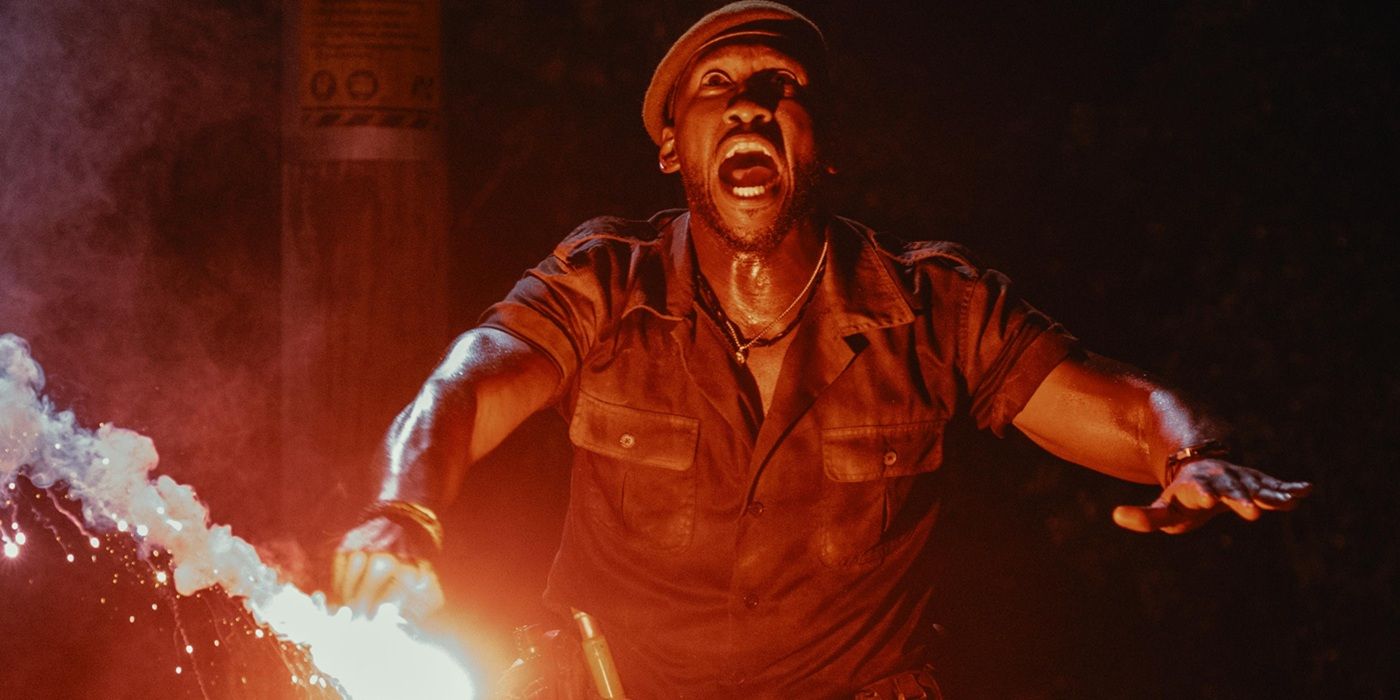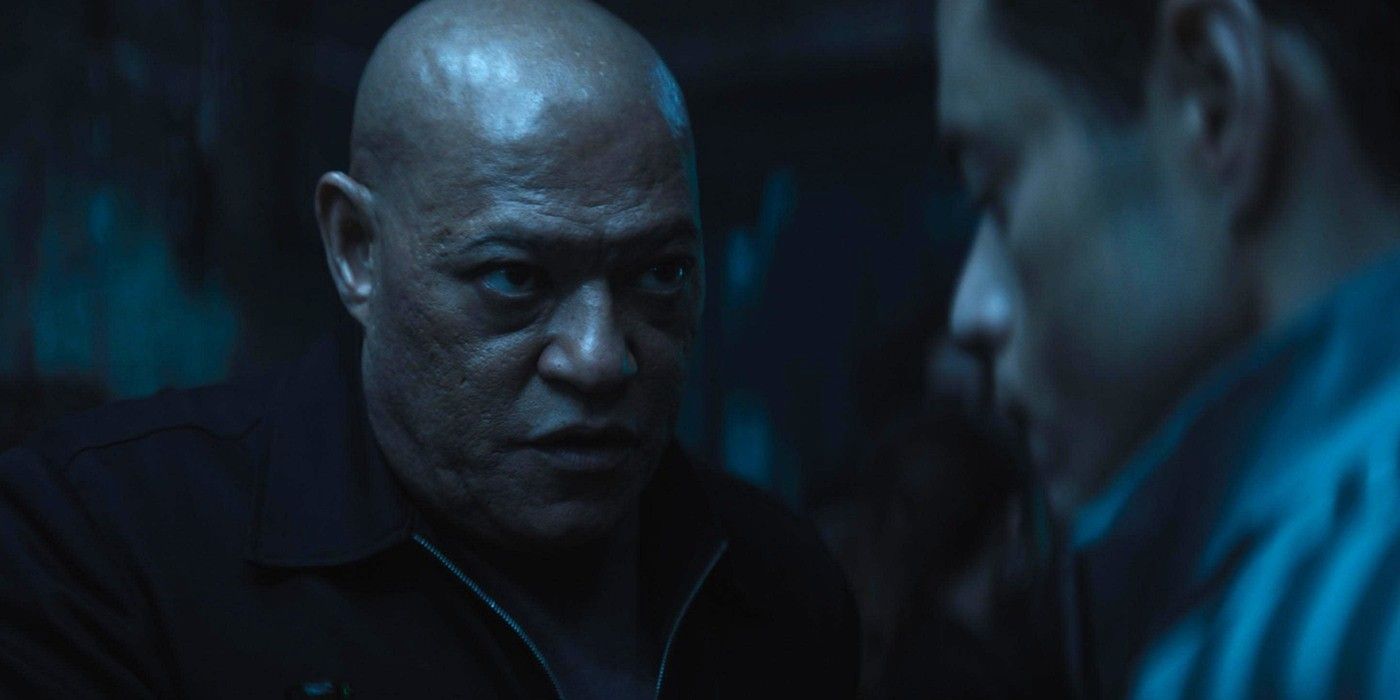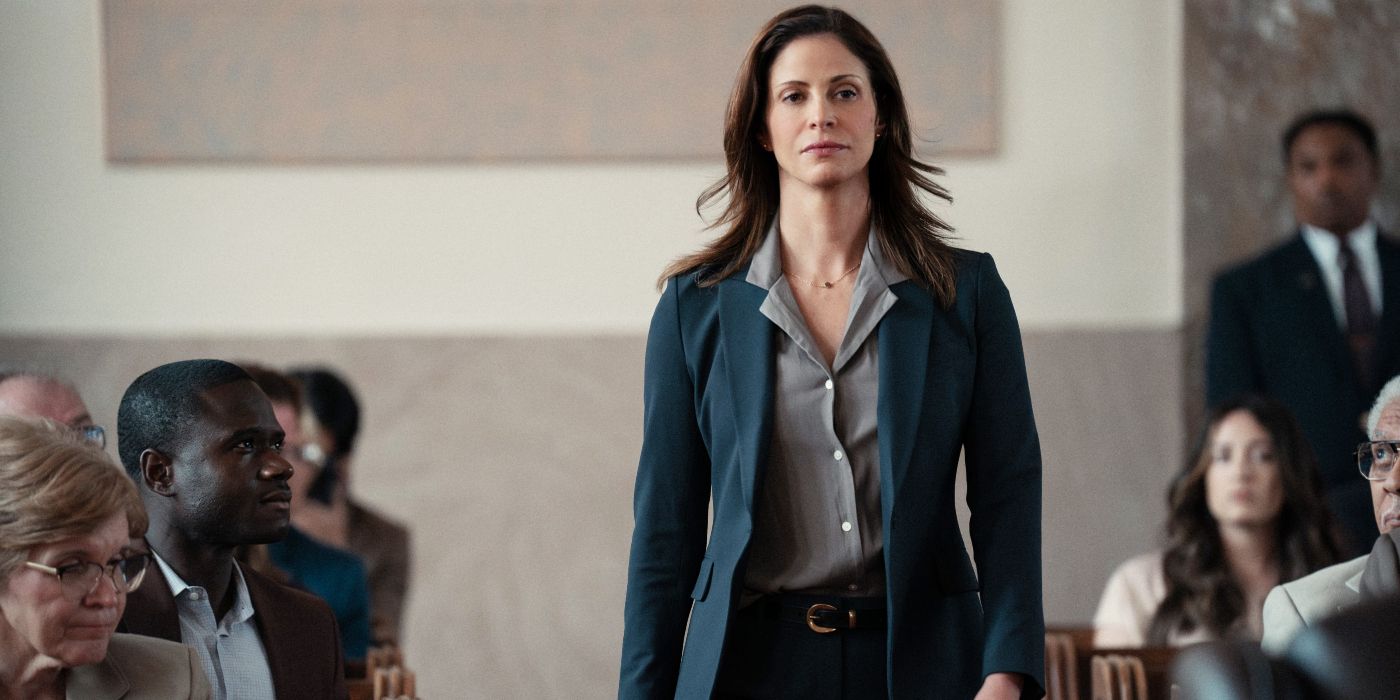Taking place over ten days in sunny East Compton, CA, “Them” portrays what happens when the Emorys, a Black family from North Carolina, move into the blindingly white suburb. From the beginning, they are met with overwhelming hostility, as the neighbors all camp outside their new home and blast their radios, sitting in the middle of the street as if they’d rather be hit by a car than have this family in their neighborhood. But Henry Emory (Ashley Thomas) and his wife Lucky (Deborah Ayorinde) agree that they’re not going to run anymore, gritting their teeth through the white noise. With Karen Stepfords like Alison Pill’s Betty leading the charge, the neighbors seek to provoke and dehumanize them while maintaining a false pleasantness toward each other. Episode one ends with the white neighbors poisoning their dog, and this disgusting act inspires Lucky to stand up to them, Henry’s gun in hand. But it only makes the neighbors turn their disgusting fear into even more vitriolic hatred.
Each of the Emorys has an arc that could sustain its own movie, but are placed in here as an intertwining saga of different descents into madness related to identity and racism. Henry starts his job as an engineer fielding all types of racist remarks at work, while being the only Black person in his office. Every time his dopey boss diminishes Henry or says something offensive, Henry doesn’t just bite his tongue, he compresses his entire being. He previously served in World War II, and has proven himself in the field, but he knows that his current environment tells him he has to roll with it. Henry’s storyline appears to be the most fleshed out, especially as his rage leads to a relationship with a supernatural figure with disturbing historical relevancy.
Henry is not alone in seeing supernatural figures, as all of the other Emorys have their own interactions strange beings that reflect their inner turmoil. While dealing with her own trauma (revealed later in the story), Lucky tries to investigate what happened to other Black families who moved to the area, while going through an immense gauntlet of feelings concerning backstory that is later revealed. Meanwhile her 14-year-old daughter Ruby (Shahadi Wright Joseph) wants to be nothing like her mother, and faces her own racism at school. Then there’s young Gracie, the youngest and least developed member of the family, who has her own visions at the Emory home, related to a book she’s been learning from.
You can view the original article HERE.



























:quality(85):upscale()/2025/04/01/587/n/1922564/fe60d6be67ebe4b0bbd6f1.79749549_.png)

:quality(85):upscale()/2025/04/01/828/n/1922564/9432574867ec361a713285.06370027_.jpg)